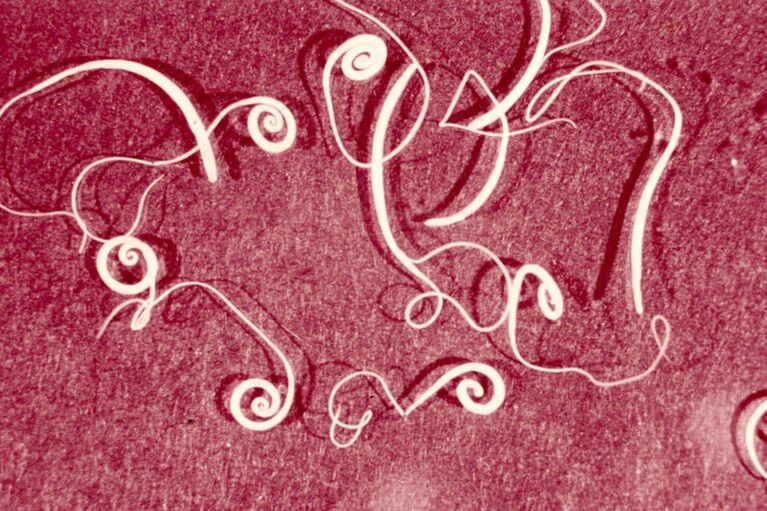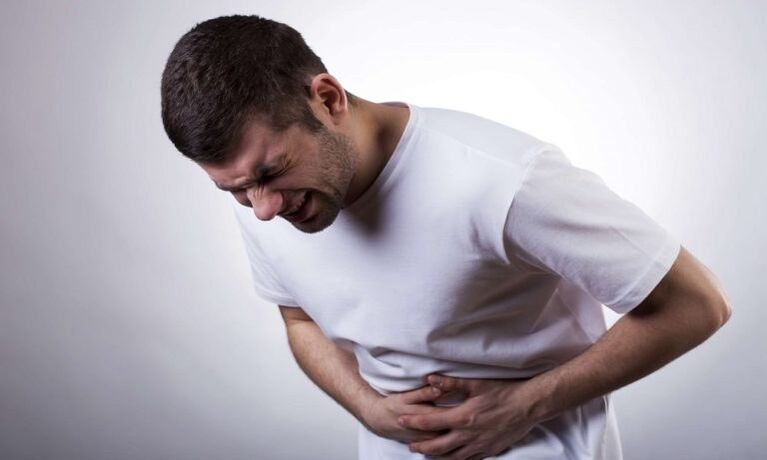The presence of parasitic organisms in the body leads not only to discomfort and the appearance of unpleasant symptoms, various diseases develop, and the state of health sharply worsens. Some types of parasites threaten not only health but also life. A dangerous neighborhood causes a decrease in immunity, damage to the integrity of internal organs. Doctors are sounding the alarm, more than eighty percent of all diseases are caused by parasites or are the result of their living in the body. The statistics are alarming: every fourth adult and every second child are infected with helminths. Very often, a person is unaware of the presence of worms until the condition becomes critical. Where do human worms come from? After all, infection occurs even in those people who strictly follow the recommendations and try to exclude all contacts with the pathogenic environment. Let's try to figure out how to avoid infection, which becomes the cause of the development of helminthic invasion.
The main routes of infection: where do the worms come from

There are different ways to become infected with parasites. Worms are a problem for a person of any age, although children are the most vulnerable category. They get to know the world by actively exploring objects by taste, they do not have persistent hygiene habits. Babies become infected mainly due to the use of plant products without preliminary washing, violations of hygiene rules after contact with pets, licking dirty fingers. Worms in children are a very common occurrence.
The mechanism of infection with parasites by adults is practically the same. Most helminthiasis develop as a result of ignoring the rules of personal hygiene. Often, infection occurs as a result of contact with sick people or animals, the use of contaminated household items and things. With insufficient heat treatment of meat and fish, there is also a high risk of getting sick. Biohelminthiases penetrate the human body in this way. To minimize the likelihood of the development of pathology, it is necessary to carefully cook, stew or fry fish and meat. Drinking contaminated water, swimming in an unknown body of water, or working in the garden with unprotected hands can cause worms to appear in an adult's body.

The main routes of infection are:
- Oral-fecal. The pathogen enters the body through contaminated food or water. This group of helminths predominantly lives in the intestines. The pathogenic organism goes through a full development cycle and secretes eggs, which go outside with the host's feces. After entering the external environment, the parasite is introduced into the body of another host.
- Through the ground. Transmission of parasites in this way occurs due to human contact with contaminated soil. The method of transmission is similar to the previous version of infection, but the eggs enter the ground not only with feces, but also with other secretions of the host's body.
- Hematogenous. Parasites enter the host organism through insect bites. Infected bloodsuckers carry helminth eggs.
- Biohelminthiasis. A complex infection system in which several intermediate and permanent hosts are present.
Life cycle of parasites
Different types of helminths have their own development cycle, but their general scheme is identical: a larva develops from an egg, which eventually transforms into an adult sexually mature individual.
Taking into account the peculiarities of development, there are three groups of parasites:
- contact;
- geohelminths;
- biohelminths.
Infection with contact parasites predominantly occurs through dirty hands. Geohelminths develop without an intermediate host. Eggs ripen in the ground. This group of parasites enters the human body through the oral cavity or skin. Biohelminths have the most complex development cycle with several intermediate hosts.
Symptoms of helminthiasis
After the penetration of parasites into the human body, the first symptoms may appear immediately or after a while, when the number of worms increases significantly or the only representative of the species grows to a large size. The first blow is taken by the immune system.

Signs of a general deterioration in health gradually appear:
- fatigue;
- poor sleep;
- apathy;
- lethargy;
- dizziness.
Such symptoms are due to an increasing deficiency of nutrients and components that are absorbed by parasites, impoverishing the human body. People with helminthiasis become weak and irritable. Specific symptoms gradually appear, which depend on the type of helminth, localization in a particular organ.
Worms in the liver
Parasites enter the organ through the blood or orally. As the disease progresses, the following symptoms are observed:
- The body temperature rises by several degrees. With the mass of parasites in the organ, necrosis, abscess may begin, in which case the temperature rises to critical figures.
- The mucous membranes and skin become yellowish as the gland produces large amounts of bilirubin.
- On palpation, an enlargement of the liver is felt. The patient feels a bursting in the organ, he presses on the adjacent tissues. Begins to disturb the pain in the abdomen on the right, breathing becomes difficult.
- A clinical blood test shows an increased content of eosinophils.
- Often worried about nausea, an unpleasant taste in the mouth. Some patients complain of dizziness.

Intestinal worms
Most parasites prefer to live in the intestines. It is an ideal place to feed, develop and reproduce. In the intestines, sexually mature individuals secrete eggs, which enter the environment with the feces of the patient.
Symptoms of localization of helminths in this organ are as follows:
- Indigestion in the form of a predominance of constipation or diarrhea, nausea and vomiting.
- Aversion to food, complete loss of appetite.
- Changing eating habits. The patient refuses his favorite dishes, preferring an unusual taste.
- The presence of blood in the feces.
- Very severe cramping abdominal pain.
- The presence of parasites or their fragments in feces, vomit.
- Bowel obstruction.

Worms in the lungs
Worms enter the lungs with the blood stream. Localization of helminths in the respiratory system causes great harm to the body. Symptoms of lung damage are the following:
- Chest pain.
- Exhausting cough with expectoration.
- Increased body temperature.
- Hearing wheezing in the chest.
- Difficulty breathing, the development of an asthmatic component.
With mass seeding of the lungs, the likelihood of developing complications in the form of pneumonia, blockage of the airways, necrosis or abscess is high.
Worms in the eyes
Localization of helminth larvae in the eyes leads to serious vision problems. The symptoms of the presence of parasites in the eyes are as follows:
- Visible seals under the eyelids.
- Pain and movement in the eyes.
- A sharp decrease in visual acuity.
- Changing the position of the eyeball.
- Progressive squint.
- Constant discharge from the eye.

Worms in the brain
The presence of parasites in the brain is one of the most serious conditions, since helminths irretrievably damage the nerve fibers. Very often, the disease ends with the death of the patient.
The symptoms of brain parasites are:
- Violent migraine headache.
- Dizziness.
- Nausea, vomiting.
- Accession of neuropsychiatric disorders.
Helminthic invasion therapy
Parasites in the body of adults and children are often detected. The awareness of the presence of pathogenic individuals in one's own body is rather unpleasant. It is necessary to start correct treatment in a timely manner. Only a qualified specialist can prescribe antihelminthic drugs.
To confirm or deny your suspicions, you need to be examined and tested.
The doctor recommends any method for detecting helminths: a complete blood count, feces, urine, ultrasound or X-ray, endoscopy or CT. Based on the type of parasite identified, treatment is prescribed. The pharmaceutical industry is ready to offer a lot of effective drugs against worms. Treatment can be carried out with the use of a drug once or a course. It all depends on the type of parasite, place of localization, quantity, as well as the general condition of the patient.
When detecting the fact of helminthiasis in the family, it is recommended to undergo treatment of parasites in the body for all those living together. Human helminths are not only an unpleasant, but also a very dangerous disease that threatens the development of many complications. You cannot ignore the situation or use the drugs yourself. Only a doctor can prescribe a remedy that will be as effective as possible and will not harm.
There are folk recipes that can become a powerful support for the body against helminthiasis. The drugs can be used as an adjunct to drug therapy or for prophylaxis. It should be understood that you cannot take traditional medicine on your own. Initially, you need to find out information about the parasite, find out the place of its localization. If possible, your doctor will recommend adding alternative medicine prescriptions to your therapy regimen.
The best folk remedies are such plant components: pumpkin seeds, wormwood, ginger, herbal preparations, tansy, buckthorn.

Preventive actions
Worm infestations are not as harmless as they might seem at first glance. The disease undermines health, negatively affects the general condition. For babies, helminthiasis is much more dangerous: the child is seriously lagging behind in development, is often sick.
Preventive measures are simple and easy to do, you just need to form some good habits:
- Wash hands before eating, after walking, visiting public places.
- Carry out deworming of pets.
- Eat only washed plant foods.
- Do not drink unboiled water, refuse to swim in unknown bodies of water.
- Work in the garden or vegetable garden with gloves.
- Prepare meat and fish dishes thoroughly.
- Refuse to buy food in spontaneous markets.
And although it is impossible to completely protect against helminthic invasion, it is really possible to minimize the risks by following the recommendations of specialists. Do not be ill!



























